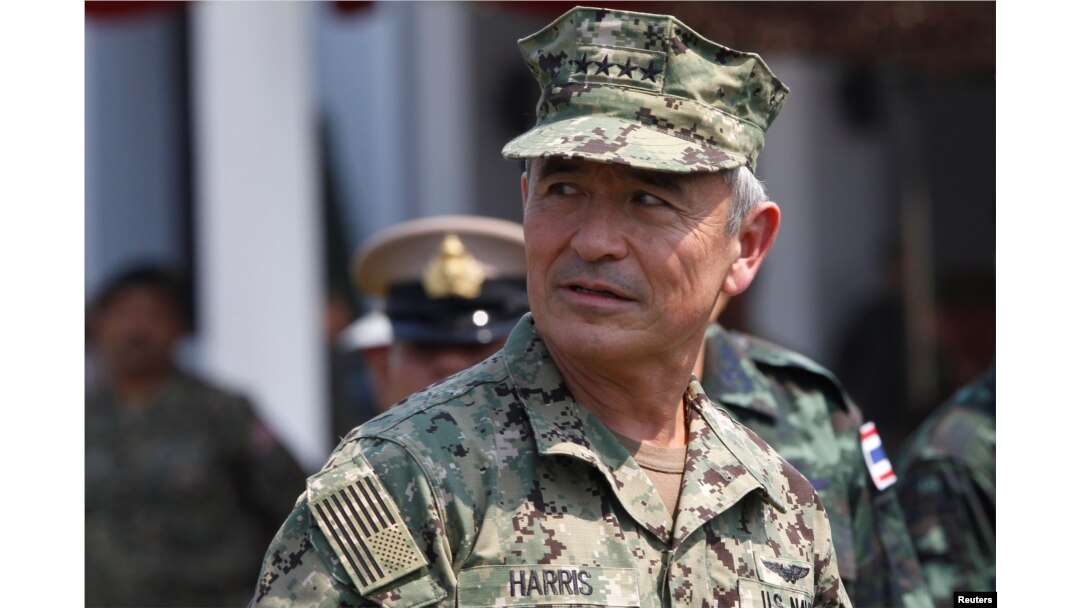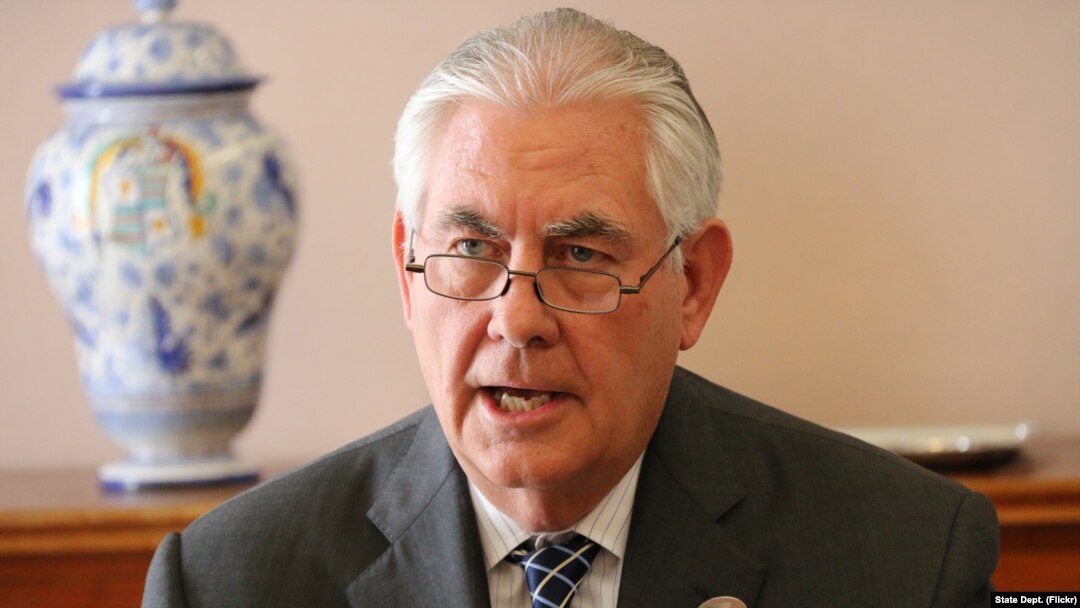U.S. Secretary of State Rex Tillerson will make his United Nations debut Friday, chairing a high-level Security Council session on the threat posed by North Korea's quest to build a nuclear bomb.
No immediate council action is expected, but Tillerson is expected to push for other members to join the U.S. in ratcheting up the pressure on Pyongyang.
The top U.S. diplomat for East Asia on Wednesday called it the start of a "last best way to see if we can get a peaceful resolution."
“The problem has become a lot more urgent,” acting Assistant Secretary of State Susan Thornton told an audience in Washington, adding that the focus will be on economic sanctions.
“It's very necessary for the international community to come together and share information and go after some of these companies that are providing either products or equipment that contribute to the weapons program,” she said. “We are definitely looking at China and expecting them to really step up and do a lot more than they've done in the past.”
Trump administration officials have expressed hope in recent weeks that Beijing is willing to do more.

FILE - U.S. Admiral Harry Harris, commander of the Pacific Command attends the opening ceremony of the Asia-Pacific multilateral military exercise known as Cobra Gold, at Sattahip Royal Thai Marine Corps Base in Chonburi, Thailand, Feb. 14, 2017.
Later Thursday, Tillerson said on Fox News that China had threatened sanctions if North Korea were to conduct another nuclear test.
He said China is in communication with Pyongyang, and "they confirmed to us that they had requested the regime conduct no further nuclear test." He added that despite major ceremonies this week, there had been no nuclear or missile tests.
The secretary of state, however, did not say when China made the threat and there was no immediate confirmation from Beijing, according to Reuters.
Time may be running out
Most recently, the commander of U.S. forces in the Pacific told lawmakers he is “reasonably optimistic” about China's efforts, although he cautioned that time may be running out.
“The crisis on the Korean Peninsula is real as the worst I've seen,” Admiral Harry Harris told the Senate Armed Services Committee on Thursday, adding “there is no doubt” North Korean leader Kim Jong Un is intent on building the capacity to threaten the U.S. with nuclear weapons.
The Security Council meeting will come two days after U.S. President Donald Trump gathered lawmakers for extraordinary classified briefings on the threat from Pyongyang and on his administration's plans to try to defuse the rising tensions.
Meeting a critical opportunity
Friday's meeting, which will include China's foreign minister as well as his counterparts from Japan and South Korea, will be a critical opportunity for the U.S. secretary of state to lay out Washington's game plan for countries that are on the front line of the North Korean nuclear threat.
“Tillerson's appearance before the Security Council is going to be, I imagine, a call for greater focus, greater urgency and greater strength by the Security Council,” said David Pressman, former deputy U.N. ambassador from the United States and a partner with Boies Schiller Flexner in New York. He said it also would be a call to China to use its influence on North Korea to have it change course.
Last year, North Korea conducted two nuclear tests and 24 ballistic missile launches. Already this year it has carried out ballistic missile tests in February, March and April, and experts believe another nuclear test could be imminent.
Chinese Foreign Minister Wang Yi speaks during a meeting in Athens, on April 23, 2017.
Strengthening sanctions
On Monday, during a lunch meeting with Security Council ambassadors at the White House, Trump said the council must be prepared to impose additional and stronger sanctions on North Korea's nuclear and ballistic missile programs.
Since 2006, the Security Council has imposed five rounds of sanctions on the regime, in an effort to stop it from advancing its nuclear program.
Pressman led the U.S. negotiations for the Obama administration on the last and most robust round of targeted sanctions, which the council unanimously approved last November. He says Beijing has demonstrated a willingness to respond strongly to Pyongyang's provocations, but so far, China's engagement has not yielded the necessary results.
“Is there more that China can do? There is, absolutely. Are they prepared to do it? I certainly hope so,” Pressman said. “Because should they not be willing to do so, then the options for diplomacy to resolve this situation are becoming increasingly limited, and that is obviously extremely concerning when you are dealing with nuclear weapons.”
Speaking earlier this week in Athens, Chinese Foreign Minister Wang Yi said that “China is neither the focus of current conflicts nor the holder of the key to solving the Korean Peninsula issue,” according to his ministry's website, and he called for a “peaceful and rational voice” on the matter.


